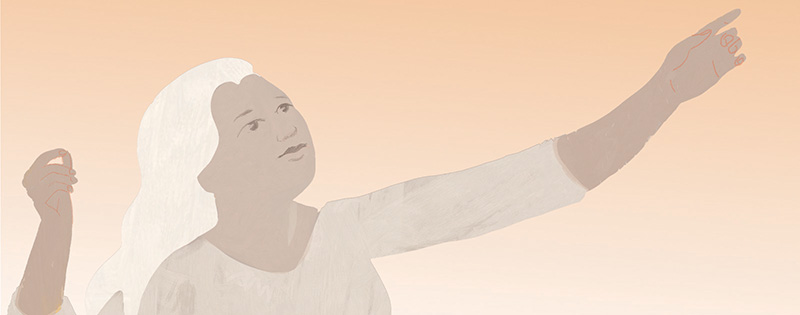
An interview with Jack and Judith Balswick, professor emeritus of sociology and family development and professor emerita of marital and family therapy respectively, by FULLER magazine Editor in Chief Jerome Blanco.
Jerome Blanco: You were both such pillars of Fuller’s MFT program for many years, teaching here for over two decades! It’s now been a while since you’ve retired, yet we thought who better to shed wisdom on family in the “third third” of life than both of you. First, can you share what retirement has looked like?
Jack Balswick: A lot has happened since retirement. Now, in our 80s, we’re glad to be alive and in good spirits. For one thing, we’re living in our same home where we had so many good memories with our MFT students over the years.
Judith Balswick: One of the best things about retirement is having time and choice. We’ve enjoyed travel, leisure, family connections, and moving through our bucket list. A particular blessing for me was spending three weeks with Kenyan women leaders distributing water tanks in desolate areas of that beautiful country.
Jack: We also had time and energy to work together with former students and colleagues in the revision of three books. That was especially satisfying to me.
Jerome: You’ve taught and written on marriage and relationships over so many years. Can you share a little about what has held true for you in this stage of your own marital life?
Jack: The concept of covenant commitment continues to be the foundation of our marriage these 61 years. We’ve focused on “differentiated unity” as a key to affirming our individual gifts as they’ve contributed to our marriage, as a whole. Putting the best interest of the relationship as a priority holds true throughout marriage.
Judith: Throughout life’s ups and downs, “adaptability and cohesion” are as important in later marriage as they were in the early years. Emotional and physical intimacy continues to be a lovely aspect of our marriage. Being together 24/7 requires the enduring qualities of kindness, affirmation, mutual respect, affection, and laughter.
Jack: Don’t forget conflict skills! It amazes us that we continue to have differences after all these years. The key is talking about them and working them out. Honoring our different conflict styles has been a great help. For example, I need more time, and Judy needs resolution; but she is more willing to wait, and I come back to the conflict sooner.
Jerome: Are there particular challenges in married life that have arisen in the retirement years?
Judith: Physical problems are at the top of the list. Jack was diagnosed with cerebellar ataxia, a brain condition that impacts his balance and coordination. I also went through two cancer surgeries and, after treatment, am happy to report I am cancer free.
Jack: Judy tells people that my condition is in my “small brain,” so I make sure they understand she means the small part of my brain. Hah! I am glad to report that I cycle on a recumbent bike for a few hours each day, plus work out with weights for my upper body. Judy does aerobics, and we try to eat nutritionally.
Judith: Dealing with the unexpected challenges is stressful for sure. We’ve learned to be creative in our responses. I do more caretaking and driving since Jack’s diagnosis, while he gives me a back rub every night for my extra efforts. Our church community, family, and friends have been a great source of support and encouragement.
Jerome: What has life with your family looked like in retirement?
Judith: When we wrote our first book on the family, we didn’t even include a chapter on later life. Now we’ve lived through the many stages! It’s been such a privilege to see our adult children and grandchildren develop in their unique ways. We love the cultural richness from our adopted Korean son, Vietnamese daughter-in-law, and their children as we celebrate Asian Thanksgiving, as well as a more traditional American celebration at Christmas with our daughter and her family. And our family has recently expanded to include two teenage “great-grandsons.”
Jack: Our church has become a significant “family of families” in retirement. “Mister Jack and Miss Judy” have become fictive kin or surrogate grandparents to several young families. We enjoy the children, and they lavish us with meals when we’re in need.
Jerome: Amidst all these ups and downs, it sounds like there’s such a fullness, and even growth, that comes during these later years together.
Judith: There are joys and challenges during every stage of family life, and it’s been a privilege to be companions on this journey. There are times when we fail, but we continue to strive to love unconditionally rather than conditionally, to be gracing rather than shaming, to build up and empower rather than control, and to deepen our connection rather than distance.
Jack: God is good and our life is good. Our time at Fuller was the highlight of our most vital years. We are most grateful.

Jerome Blanco (MDiv ’16) is editor in chief of FULLER magazine and FULLER studio.
An interview with Jack and Judith Balswick, professor emeritus of sociology and family development and professor emerita of marital and family therapy respectively, by FULLER magazine Editor in Chief Jerome Blanco.
Jerome Blanco: You were both such pillars of Fuller’s MFT program for many years, teaching here for over two decades! It’s now been a while since you’ve retired, yet we thought who better to shed wisdom on family in the “third third” of life than both of you. First, can you share what retirement has looked like?
Jack Balswick: A lot has happened since retirement. Now, in our 80s, we’re glad to be alive and in good spirits. For one thing, we’re living in our same home where we had so many good memories with our MFT students over the years.
Judith Balswick: One of the best things about retirement is having time and choice. We’ve enjoyed travel, leisure, family connections, and moving through our bucket list. A particular blessing for me was spending three weeks with Kenyan women leaders distributing water tanks in desolate areas of that beautiful country.
Jack: We also had time and energy to work together with former students and colleagues in the revision of three books. That was especially satisfying to me.
Jerome: You’ve taught and written on marriage and relationships over so many years. Can you share a little about what has held true for you in this stage of your own marital life?
Jack: The concept of covenant commitment continues to be the foundation of our marriage these 61 years. We’ve focused on “differentiated unity” as a key to affirming our individual gifts as they’ve contributed to our marriage, as a whole. Putting the best interest of the relationship as a priority holds true throughout marriage.
Judith: Throughout life’s ups and downs, “adaptability and cohesion” are as important in later marriage as they were in the early years. Emotional and physical intimacy continues to be a lovely aspect of our marriage. Being together 24/7 requires the enduring qualities of kindness, affirmation, mutual respect, affection, and laughter.
Jack: Don’t forget conflict skills! It amazes us that we continue to have differences after all these years. The key is talking about them and working them out. Honoring our different conflict styles has been a great help. For example, I need more time, and Judy needs resolution; but she is more willing to wait, and I come back to the conflict sooner.
Jerome: Are there particular challenges in married life that have arisen in the retirement years?
Judith: Physical problems are at the top of the list. Jack was diagnosed with cerebellar ataxia, a brain condition that impacts his balance and coordination. I also went through two cancer surgeries and, after treatment, am happy to report I am cancer free.
Jack: Judy tells people that my condition is in my “small brain,” so I make sure they understand she means the small part of my brain. Hah! I am glad to report that I cycle on a recumbent bike for a few hours each day, plus work out with weights for my upper body. Judy does aerobics, and we try to eat nutritionally.
Judith: Dealing with the unexpected challenges is stressful for sure. We’ve learned to be creative in our responses. I do more caretaking and driving since Jack’s diagnosis, while he gives me a back rub every night for my extra efforts. Our church community, family, and friends have been a great source of support and encouragement.
Jerome: What has life with your family looked like in retirement?
Judith: When we wrote our first book on the family, we didn’t even include a chapter on later life. Now we’ve lived through the many stages! It’s been such a privilege to see our adult children and grandchildren develop in their unique ways. We love the cultural richness from our adopted Korean son, Vietnamese daughter-in-law, and their children as we celebrate Asian Thanksgiving, as well as a more traditional American celebration at Christmas with our daughter and her family. And our family has recently expanded to include two teenage “great-grandsons.”
Jack: Our church has become a significant “family of families” in retirement. “Mister Jack and Miss Judy” have become fictive kin or surrogate grandparents to several young families. We enjoy the children, and they lavish us with meals when we’re in need.
Jerome: Amidst all these ups and downs, it sounds like there’s such a fullness, and even growth, that comes during these later years together.
Judith: There are joys and challenges during every stage of family life, and it’s been a privilege to be companions on this journey. There are times when we fail, but we continue to strive to love unconditionally rather than conditionally, to be gracing rather than shaming, to build up and empower rather than control, and to deepen our connection rather than distance.
Jack: God is good and our life is good. Our time at Fuller was the highlight of our most vital years. We are most grateful.
Jerome Blanco (MDiv ’16) is editor in chief of FULLER magazine and FULLER studio.
Nicole Zasowski (MSMFT ’11) reflects on the power of practicing celebration, even amidst seasons of grief and loss.